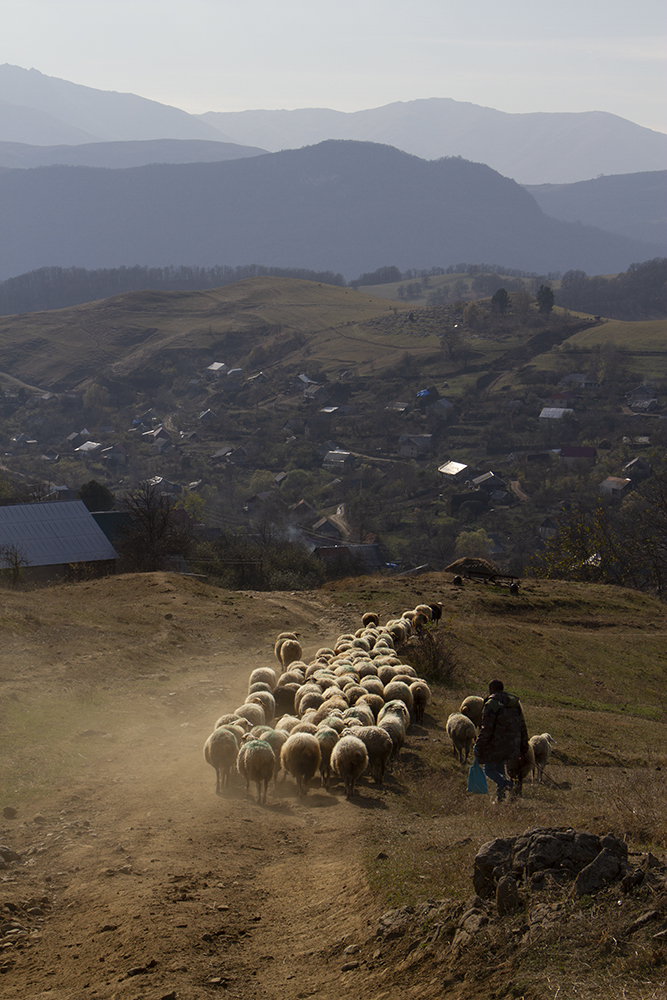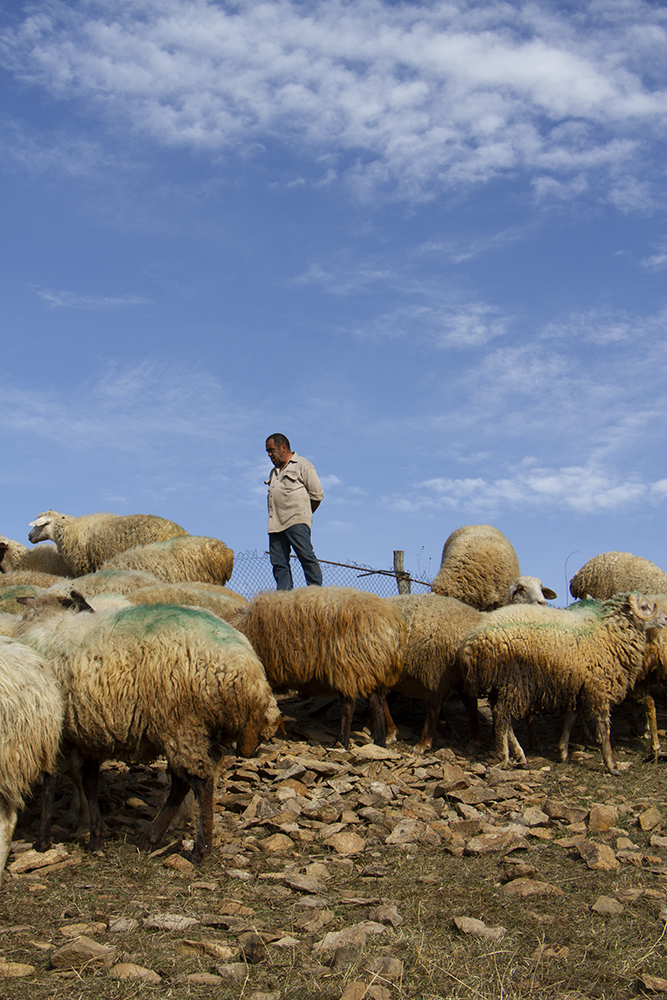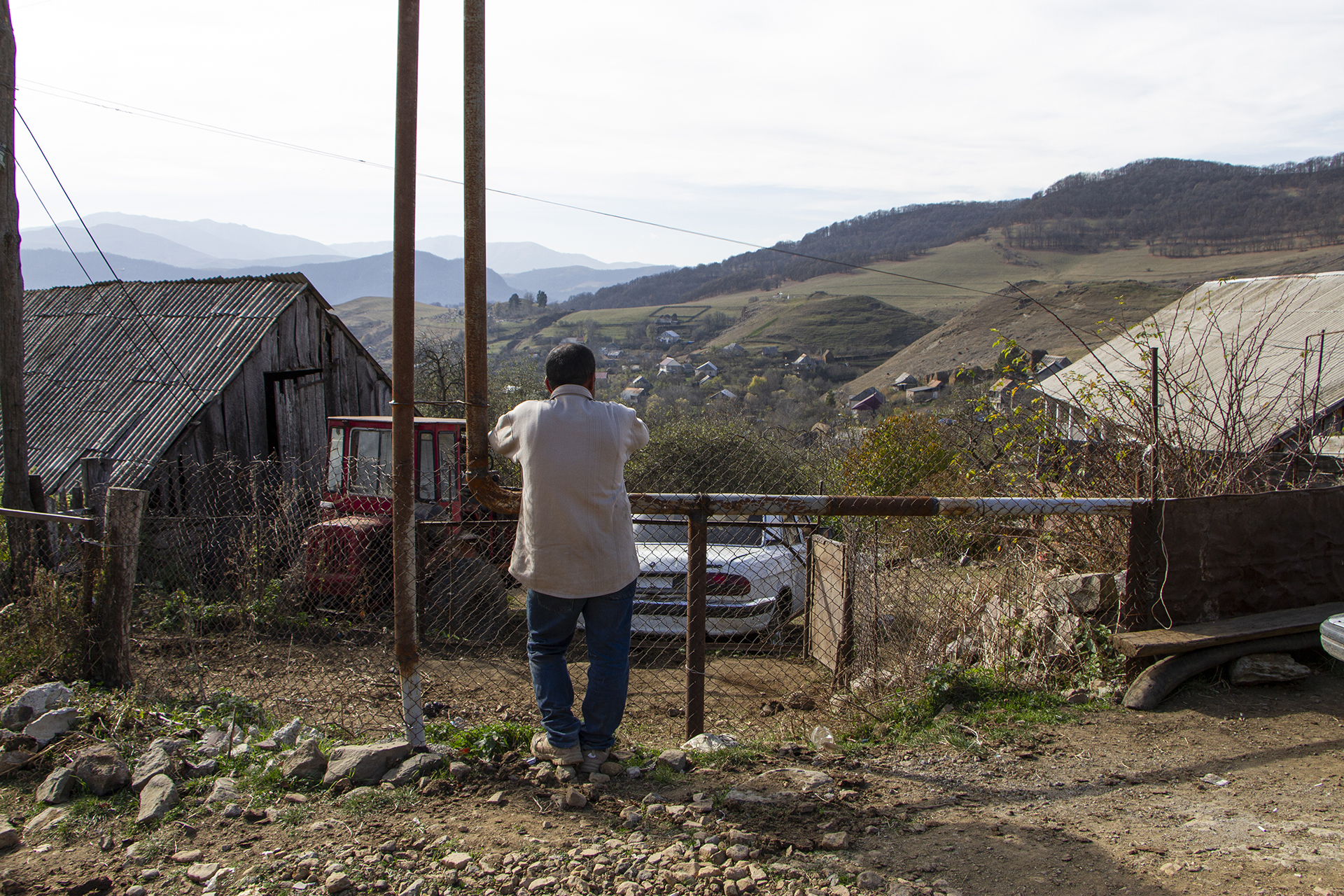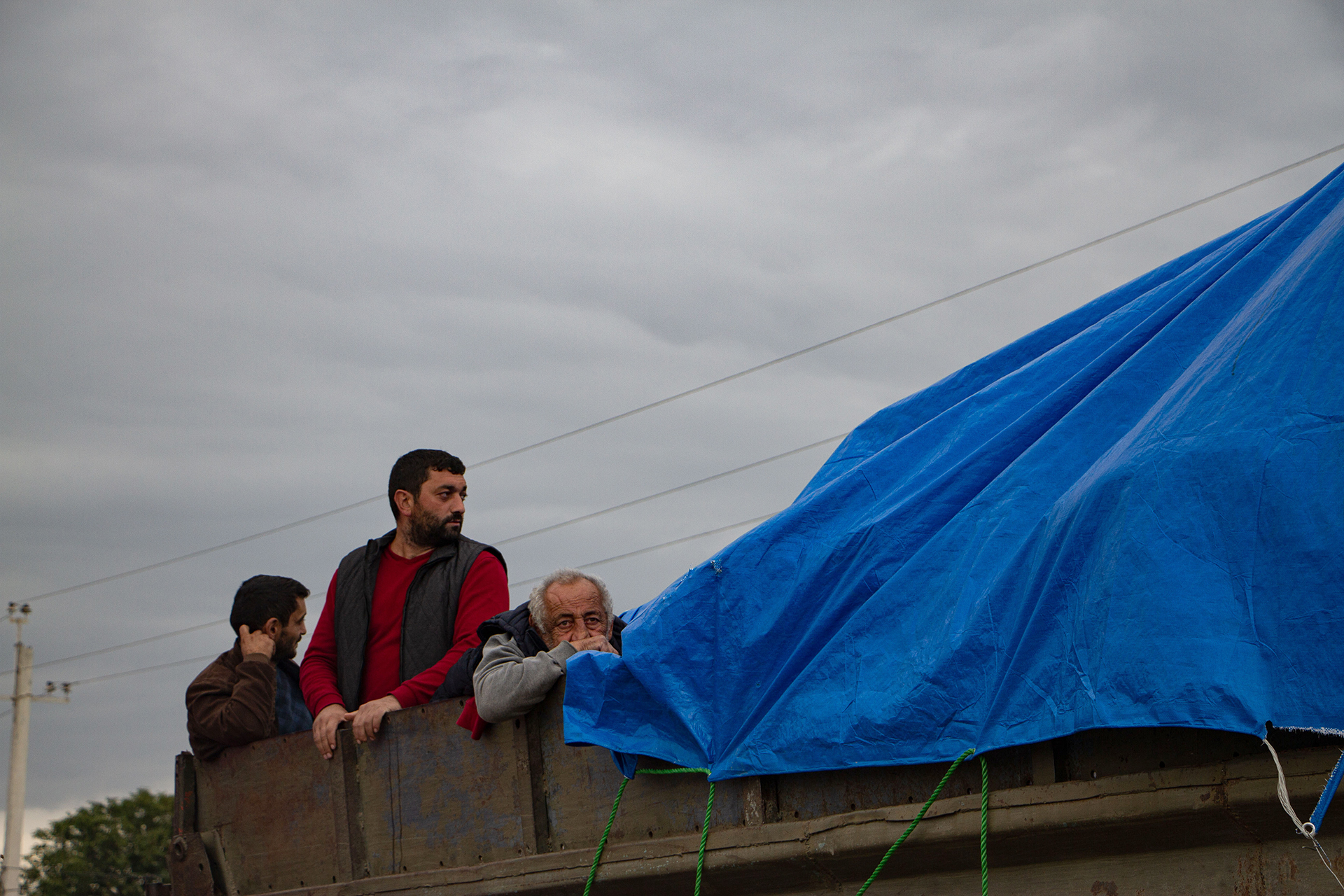On December 12, 2022, a siege was imposed on Artsakh. The Lachin Corridor – connecting Artsakh with Armenia and called the ‘Road of Life’ for its significance – was blocked for ludicrous reason.
The New Year of 2022 was the last time the people of Artsakh celebrated at home. Despite the extraordinary efforts of the Artsakhians and all the Armenians, the situation was getting worse. There were shortages of food, medicine and essential goods, with the situation growing into imminent catastrophe.
The people got used to live in the blockade, which had become part of their life. Most of them were hopeful that the border would open soon.
The blockade lasted 282 days until September 19, 2023. Then there was a one-day war followed by the opening of the road, and the people were forced to leave their houses.
About 100,000 people were displaced. On September 30, Artsakh was completely emptied.
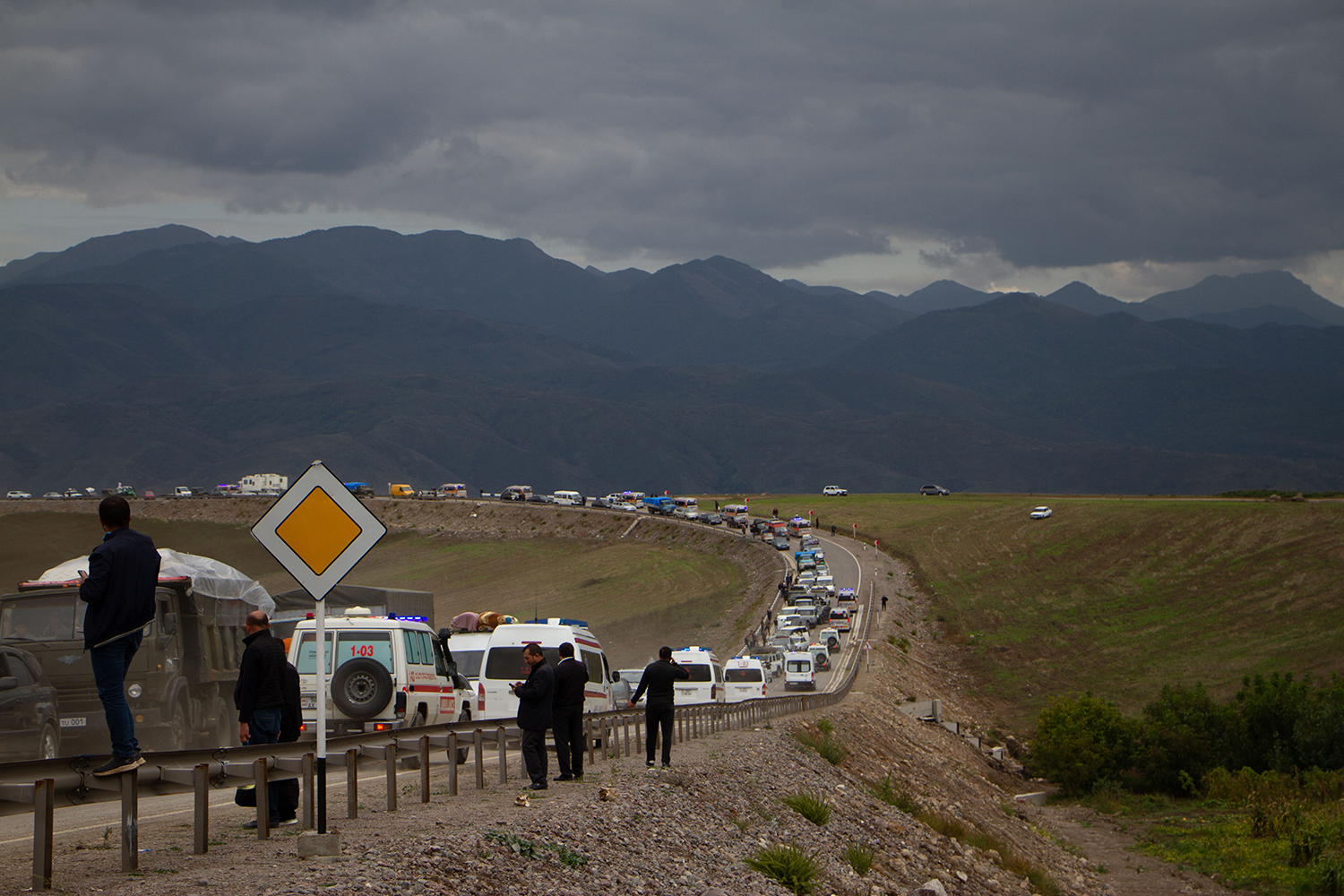
***
Yerevan, September 19
“Open the back door too!” a man shouted to the bus driver.
Several women were looking for free seats, having barely got on the bus. We got on the bus.
Some remained stranding. The bus moved. A woman next to me was watching the news with the sound of her phone muted. War had resumed in Artsakh. We could hear the music through a girl’s headphones standing on the other side of the bus, which was embarrassing.
I reached into my pocket and remembered that I had left my headphones at home. It was silent inside. People did not look at each other, pretending to be unaware of what was happening. The driver had turned off the radio, which was usually on. The image of the Virgin Mary on the dashboard of the bus was shaking from the engine, but did not fall. The driver saw the police car and fastened his seat belt without haste. The policeman noticed and passed by. We approached the church; the driver crossed himself. The bus stopped abruptly. The cross hanging from the mirror hit the windshield.
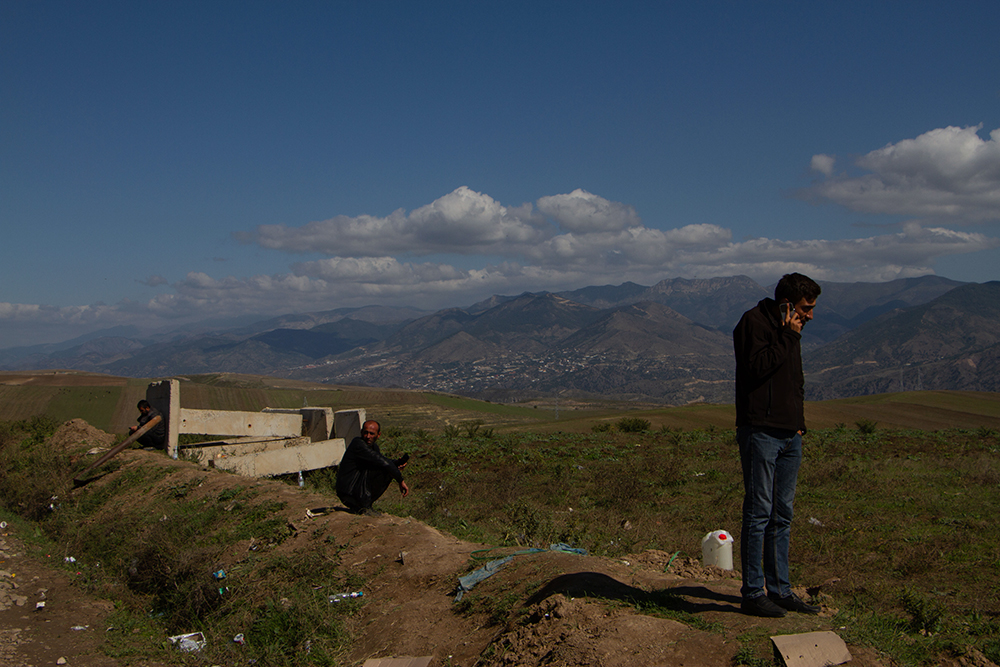
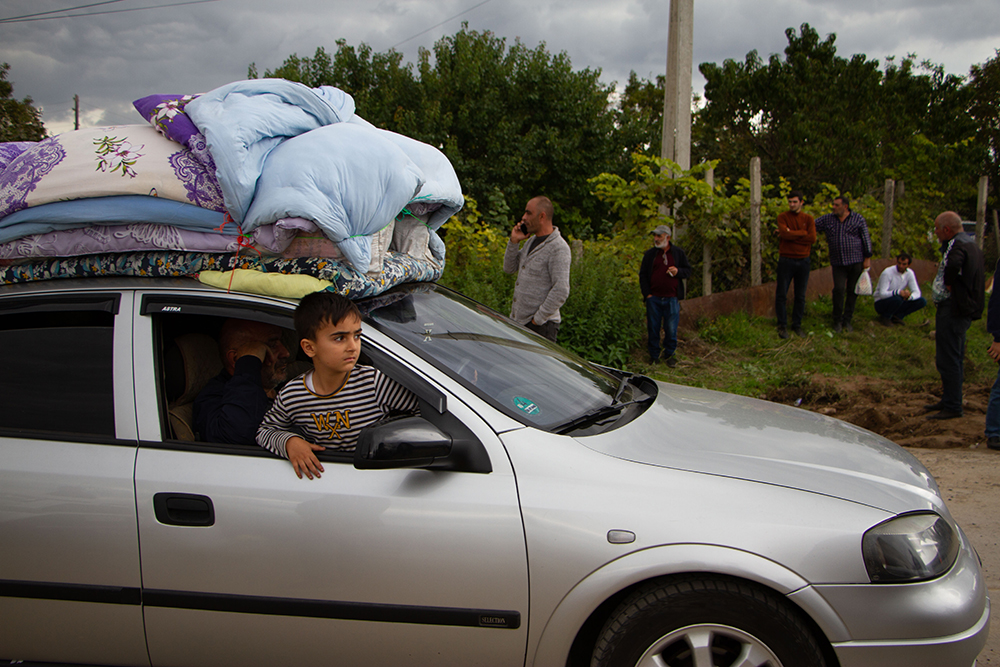
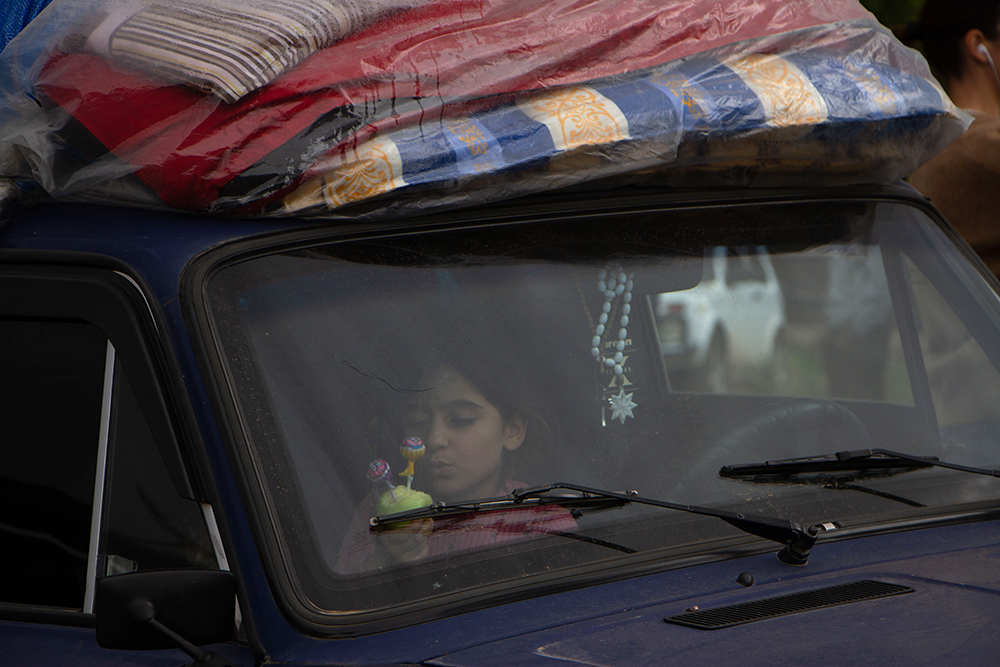
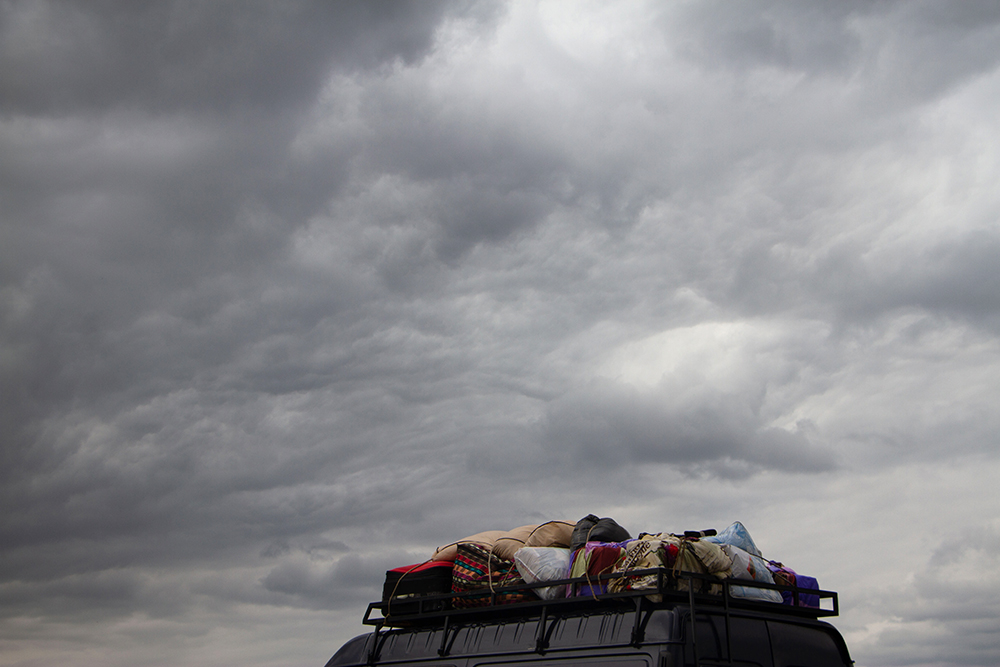
***
Kornidzor, September 27
There was a long traffic jam in Kornidzor. Lanes of vehicles stretched to the nearest mountain foot, then got out of sight. The air was polluted. The wind of sand was beating my face. Local women were looking at the once empty road of their village standing with their arms crossed. A man in a ‘07’ (VAZ 2107) – with his hand on his forehead and his eyes frozen – was staring at me. He would look at me but he did not see me. I raised my camera to take a picture of him, held it for two or more seconds then lowered it. Three men passed by me. One aged, the others younger. They greeted me reluctantly, so that I would perceive them and let them pass. They passed in a row.
“Grno!” I shouted after the last one.
“It’s not Grno, it’s Davit, his younger brother”, he answered in surprise.
“Don’t you remember me, mate? I am Khecho from Karvachar.”
“Hey, mate!” said Davo. He came closer and hugged me tightly. He lowered his eyes so that I wouldn’t see his tears. Obviously, he didn’t miss me, but he did miss Karvachar, the past and himself in the past.
“So, where is Grno?”
“Grno is in a hospital. He was injured in a missile attack. His whole leg is full of shrapnel fragments.”
“Have you got a place to stay?”
“Yeah, we’ll figure it out. Sorry mate, we’ve got to go to eat something. It’s been days since we didn’t have anything.”
Davo was one of the drivers of our military unit. He knew all the positions and mountains like the back of his hand. Whenever we watched the Ural from afar, we knew it was Davo, because of his driving style. He would bring us food and maybe vodka.
“Don’t take my picture”, said captain Aseryan who was leaning against the car and looking in the direction of Lachin.
“Why not?” I asked.
“I am an officer, I’ve got to go back to duty. I don’t want anybody to see me on the social media. This shouldn’t have been taken place. We sacrificed our whole life for this land and now… This is our fault. Whoever stood beside us, we would end up like this.
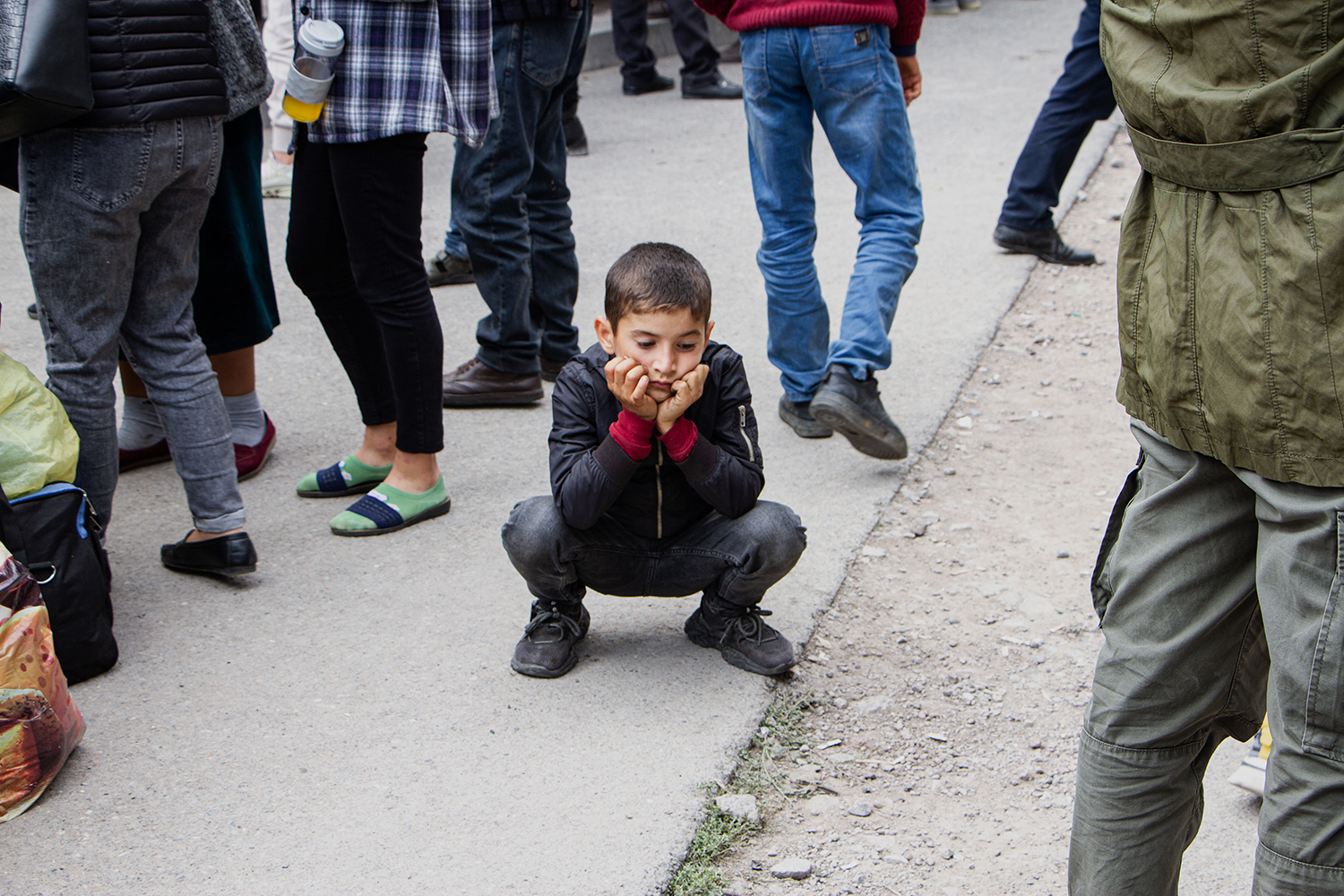
***
Goris, September 28
“Young men, how can we get to Goris House of Culture?” a woman asked from the car.
“Go straight, then take right.” I answered. “You’ll see it, once you get there. There are lots of people there.”
“Thank you! Drive, Zhorik!”
Goris House of Culture had been temporarily turned into a gathering point to provide help, to register and direct the Artsakhians to further places of shelter.
A man was sitting on a stone near the House of Culture. I don’t remember his name.
“Where are you from?” I asked.
“Martuni.”
“Where are you going?”
“To Ashkhabad, to my son. I have no one here anymore. In 1988, I fled from Sugait to Martuni then to Stepanakert with my family. And now I am here. Every time I lose one family member. I’d better go and live what is left for me to live… hopefully in peace.”
A helicopter carrying the wounded flew over the city.
“I am wondering if they will survive.” said the man from Martuni extinguishing his cigarette on the ground.
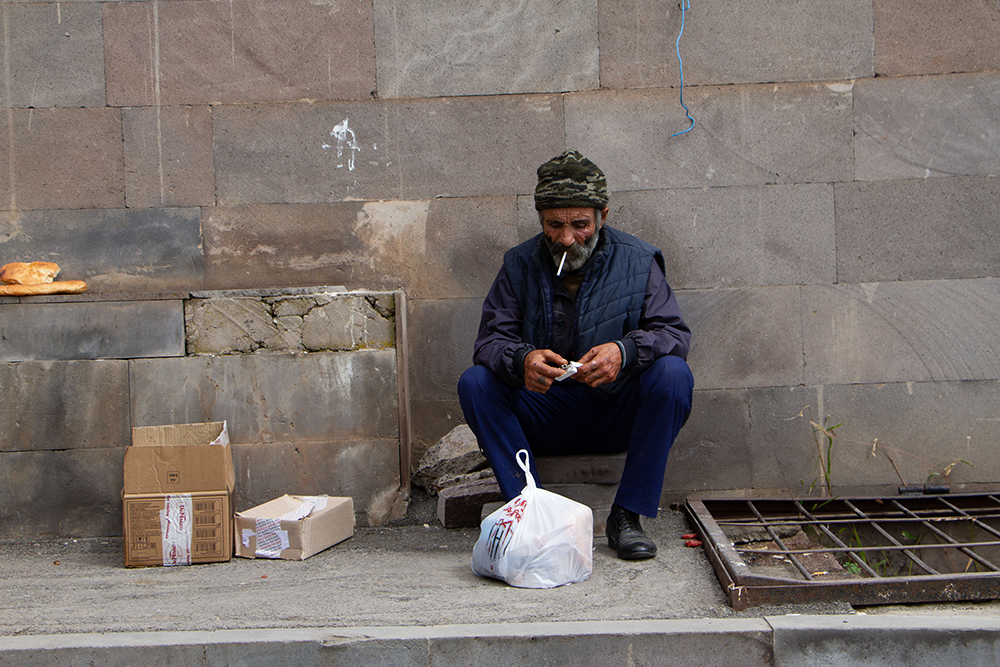
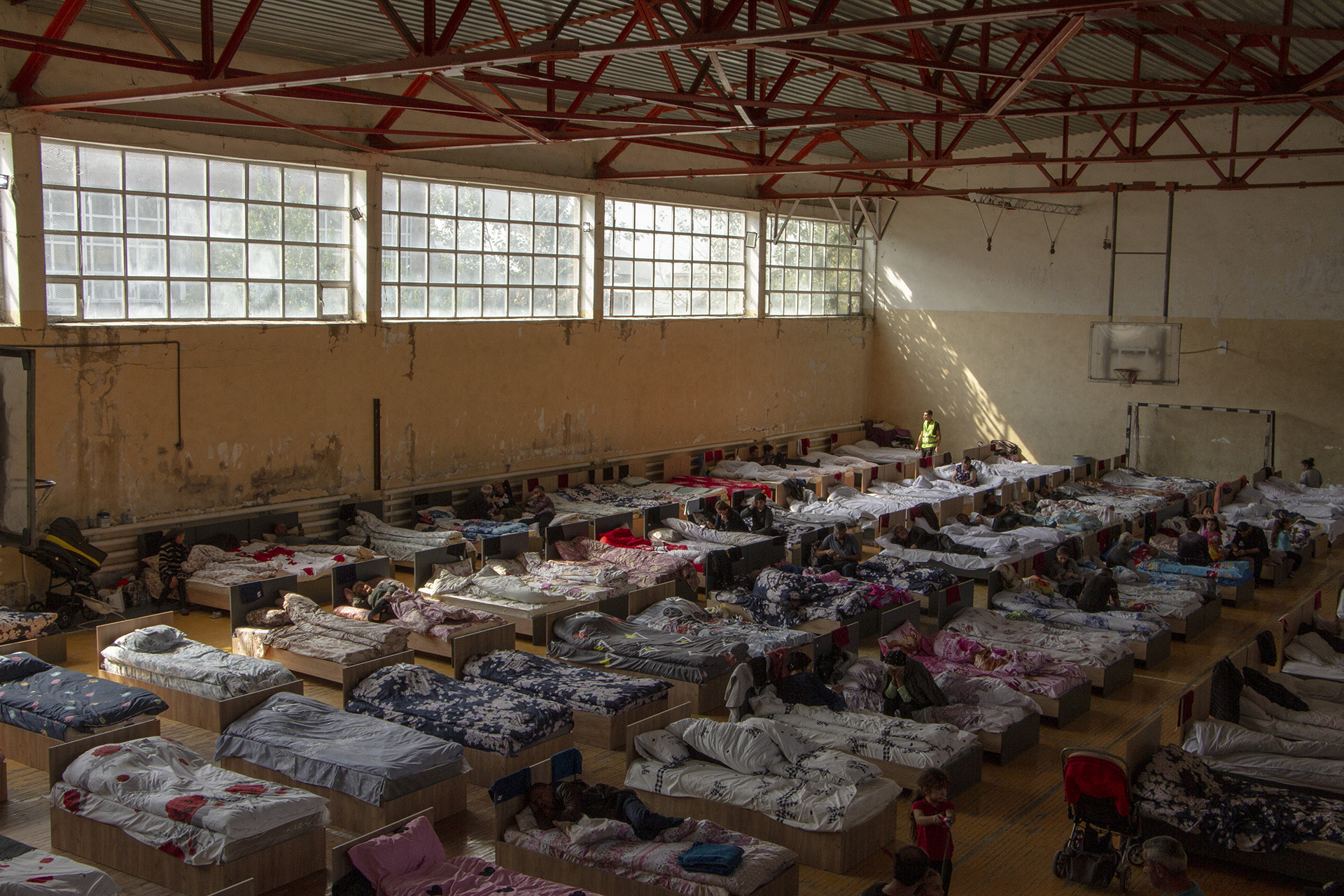
***
Artashat, October 2
It takes three to four hours to get to Artashat from Artsakh, but it took three to four days.
Artashat sports school was the first destination for dozens of families. Grandfather Hrach arrived with his family two days ago.
“Where do you want to go?” I asked Hrach.
“It doesn’t matter, a place I would die then.”
Hrach was as still as a stone. He would only hug and squeeze his granddaughter Silva when he saw her. He would look into her eyes and hug her tightly so that Silva would be lost in her granny’s arms.
The sports hall was full of children: their voices, their laughter, their cries and fighting. The noise compelled to live.
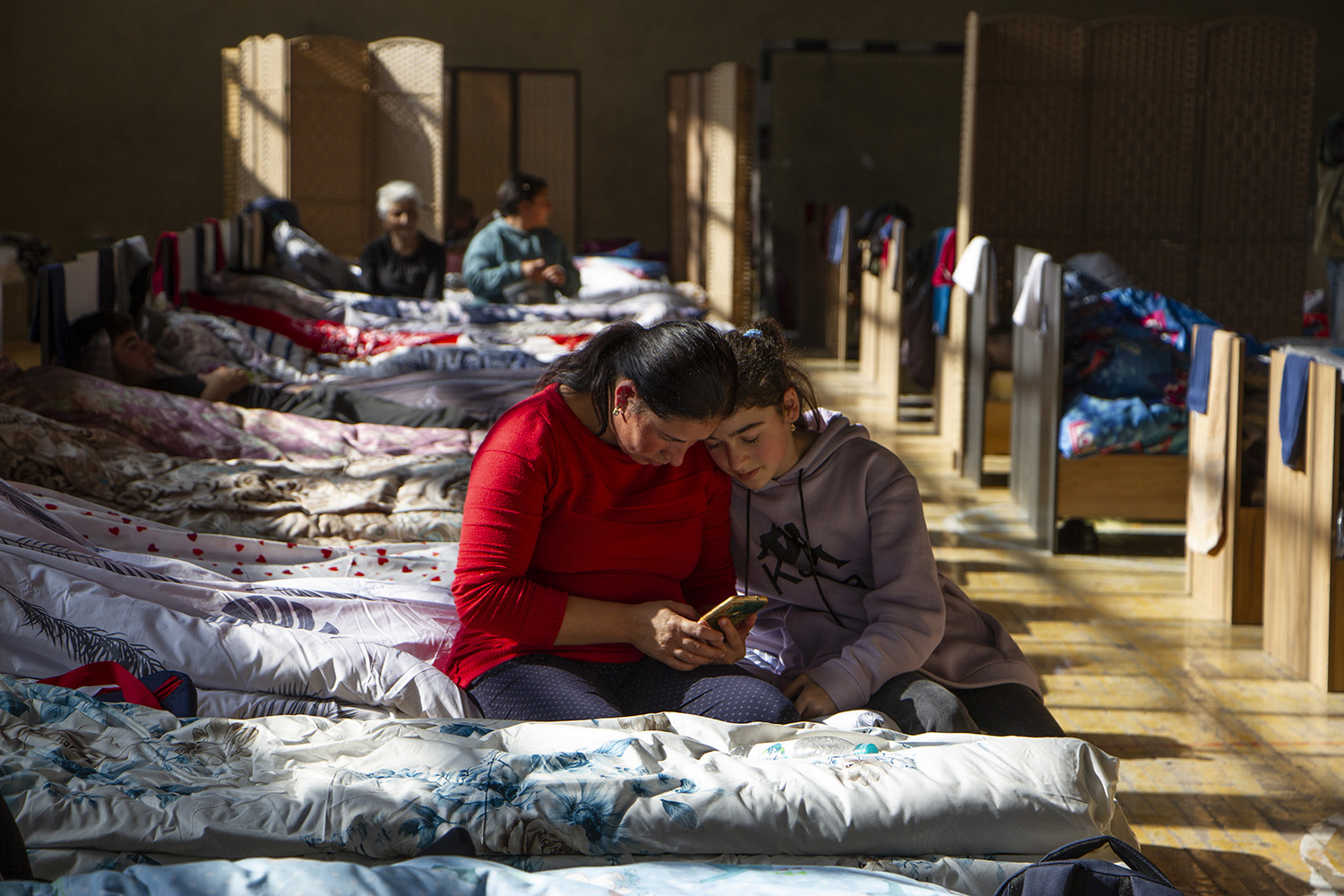
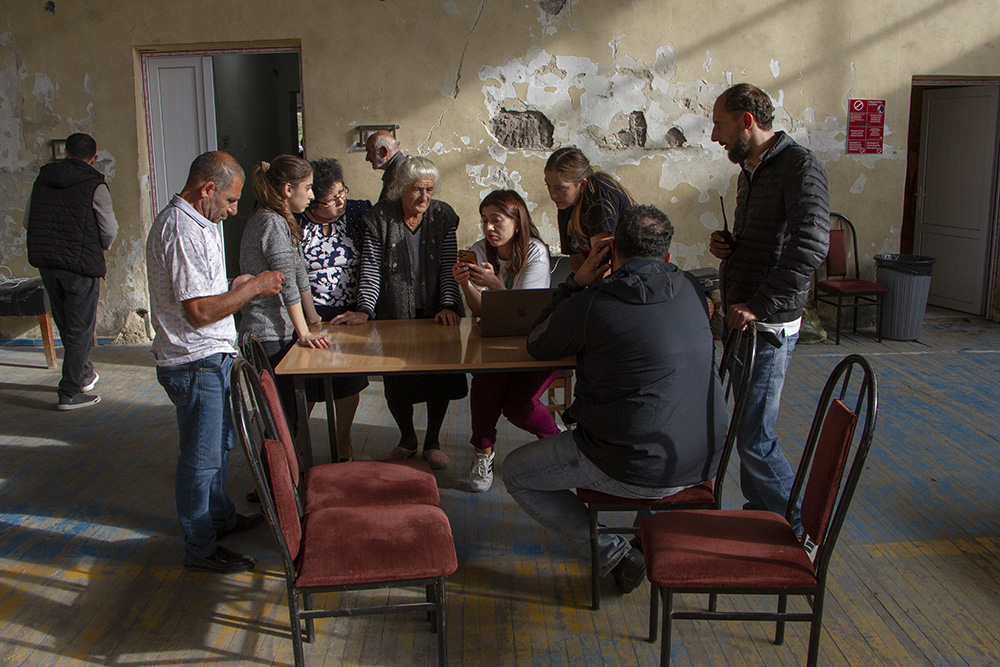
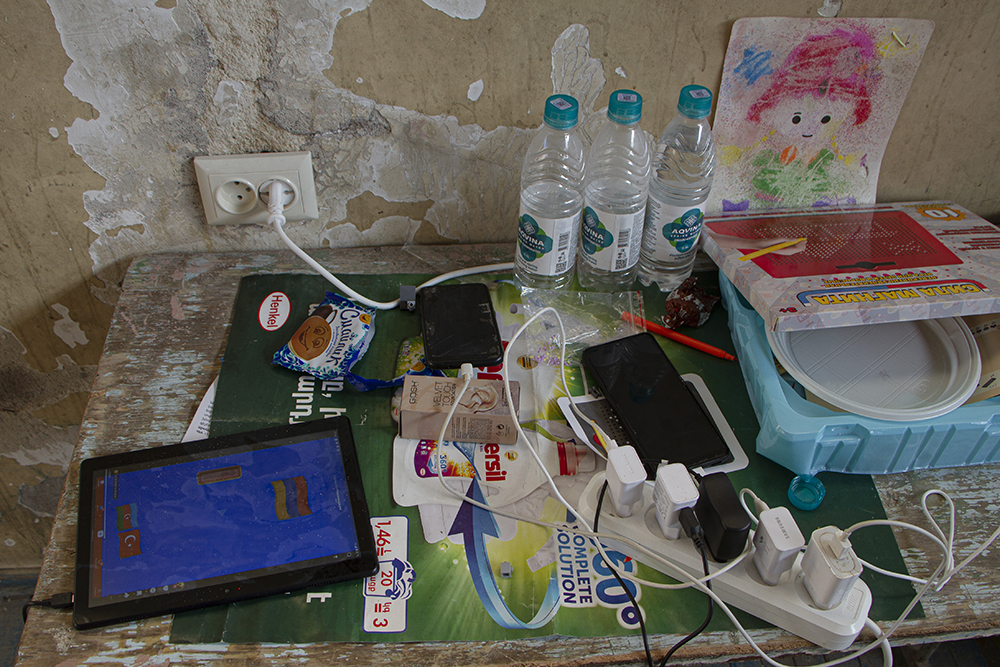
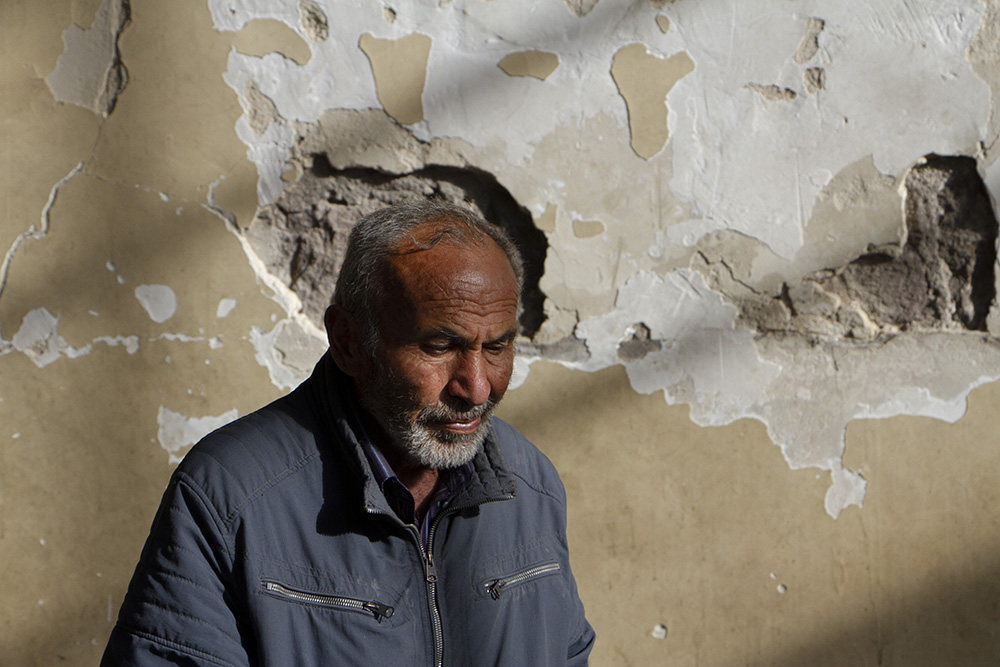
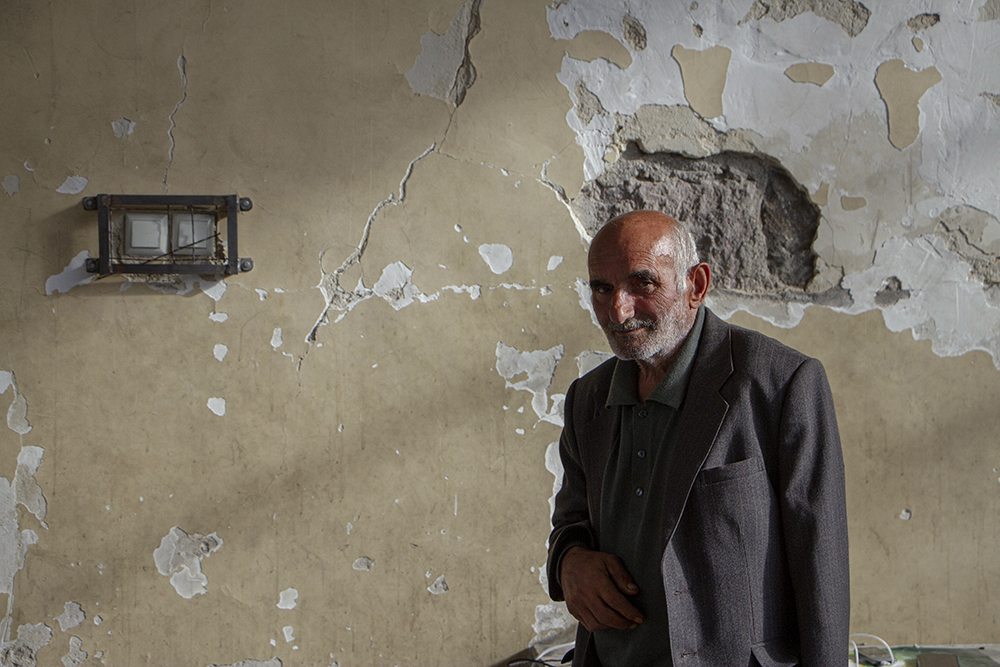
“Is Artashat very far from Armenia?” Eric asked, who had brought with him but a loudspeaker which had become an important entertaining element in the school.
“Well, in fact Artashat is in Armenia.” I answered.
“I mean Yerevan. Armenia, Yerevan, isn’t it the same?”
“Well, yes, of course, some 25 – 30 km.”
“No, it’s far. I’d better stay here, though I have no one here. I was eight when our family fled from Sumgait to Haterk, then to Stepanakert, and now Artashat. I’ve lost my family, I don’t want to flee anymore. I want to live in peace. I want to sing.”
“Your eyes are blue; they shine like the sun; your love warms up my heart, it gets warmer and warmer…”
“Eric, dinner is getting cold!” Ellen shouted, who had volunteered to help the Artsakhians. “Let’s go. You’ll continue later.”
“Where shall I look a house for you, uncle Valod?” asked Vazgen, another volunteer who was trying to find a permanent residence for the Artsakh Armenians.
“Well, I am not quite familiar with Armenia, my boy. See if it’s not very close to the border, and that it is not cold there. The rest doesn’t matter.”
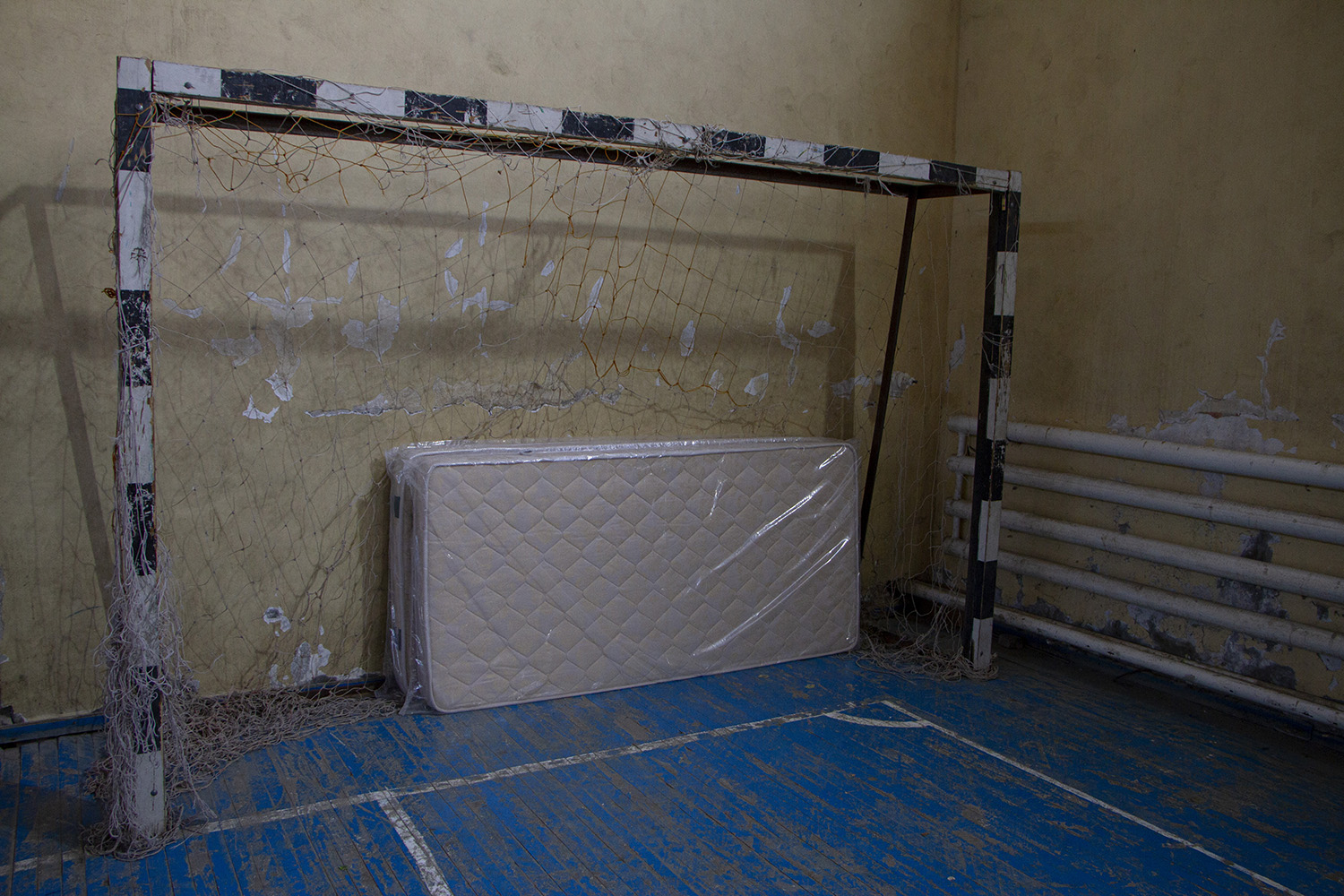
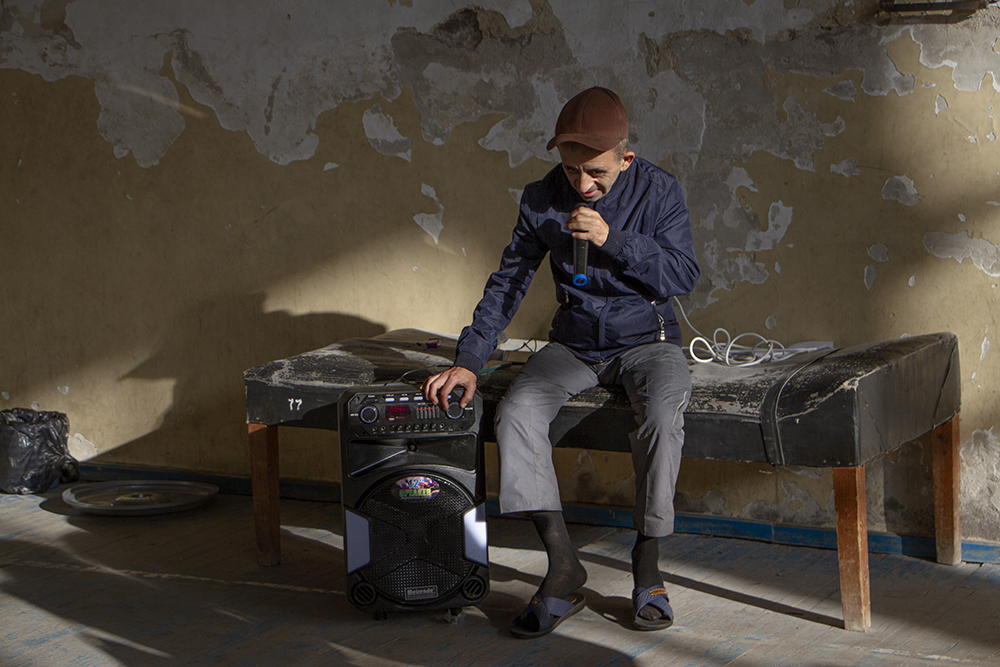
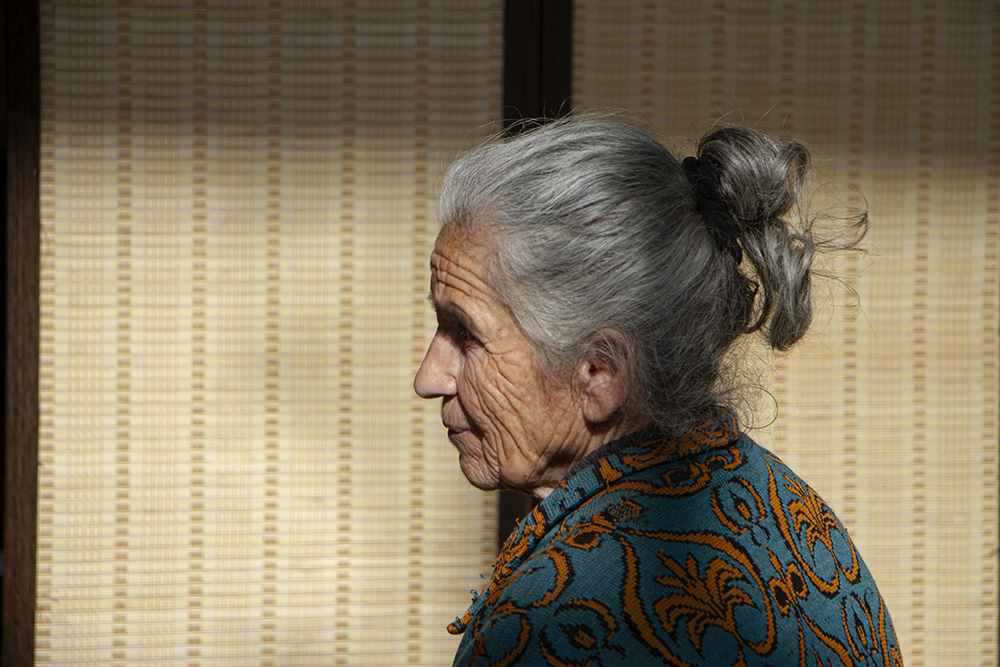
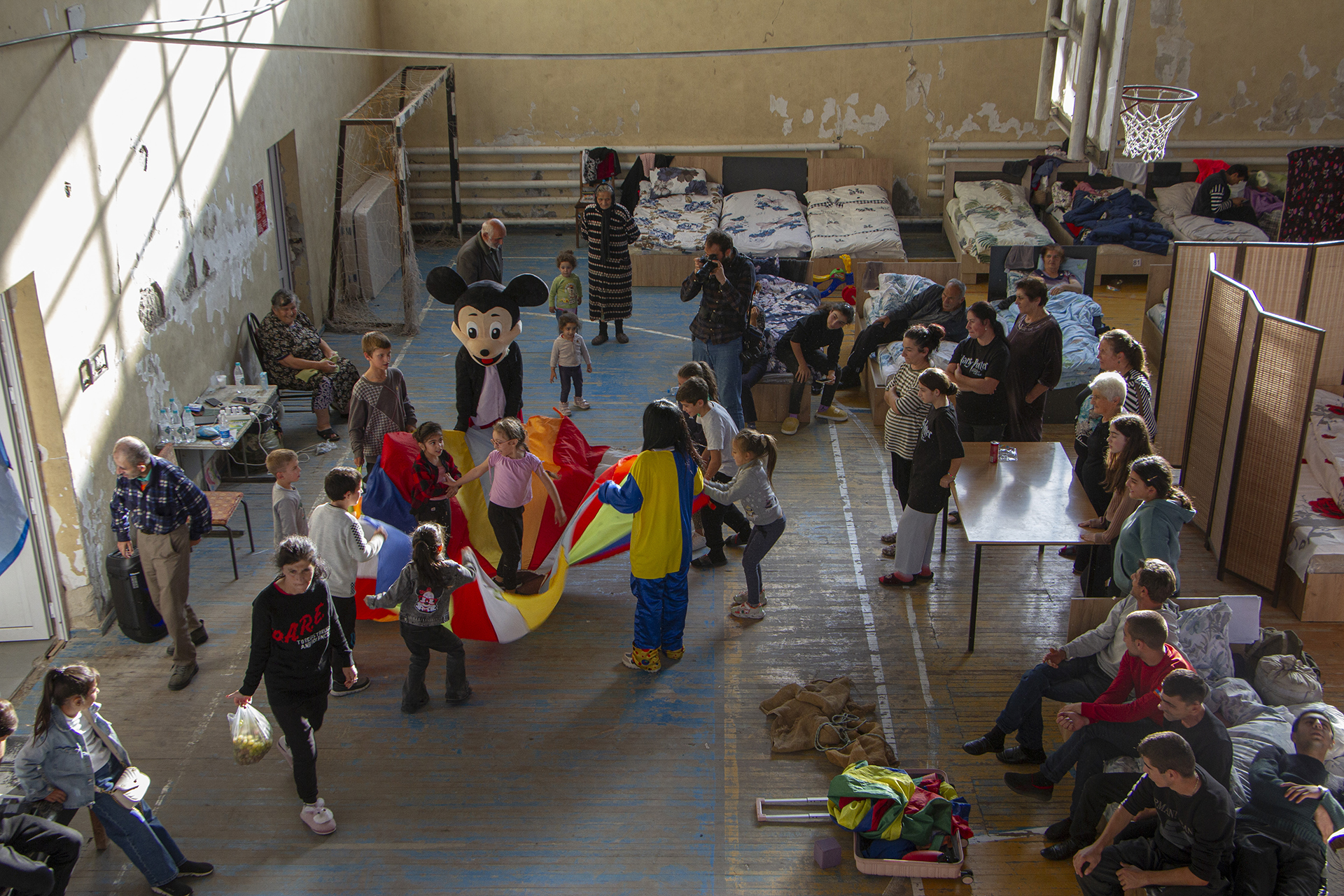
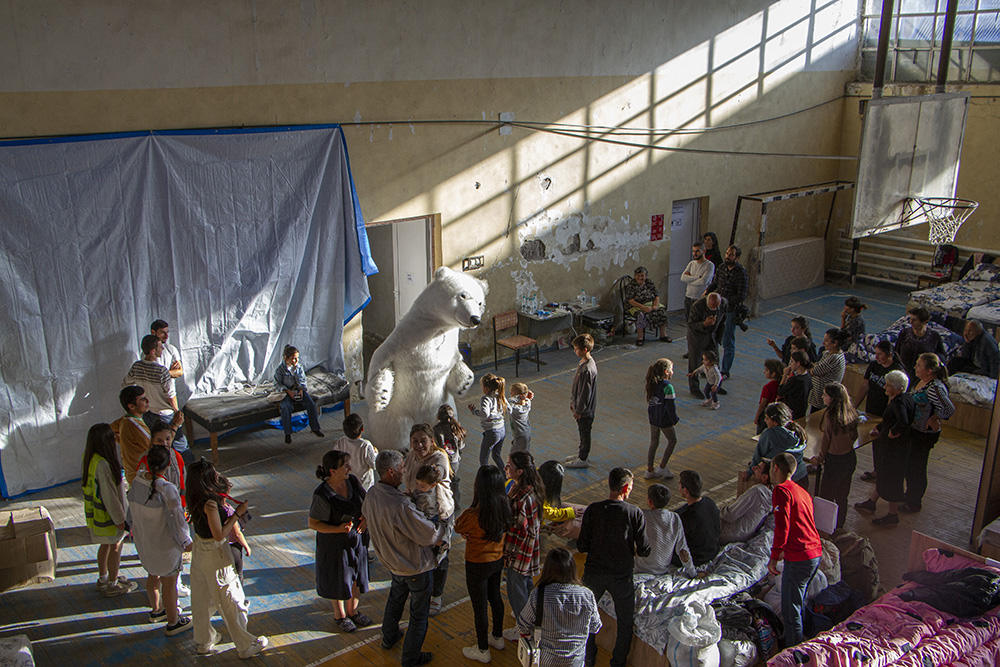
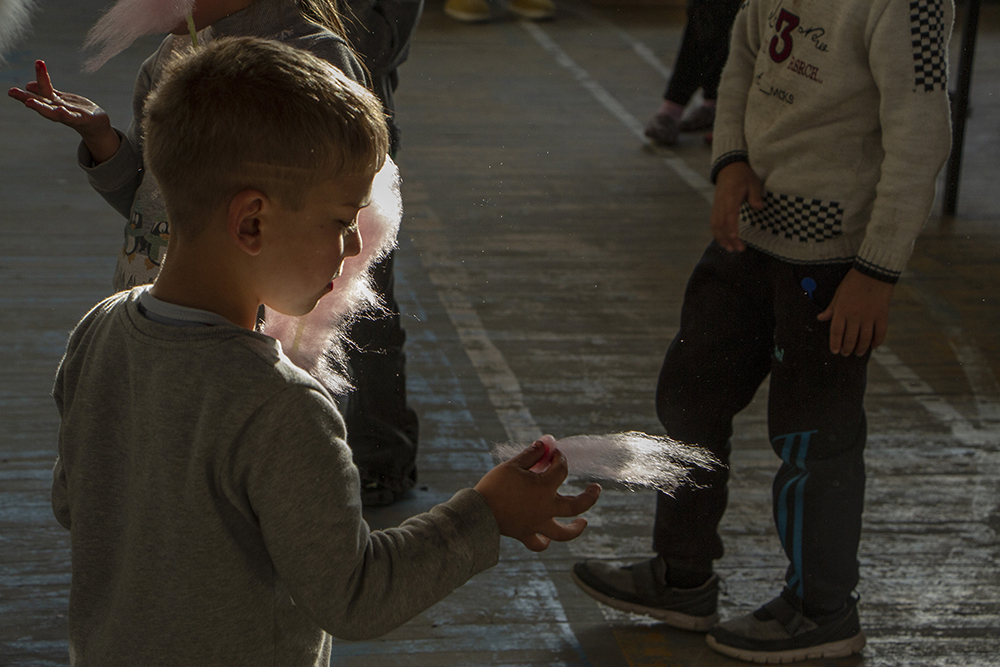
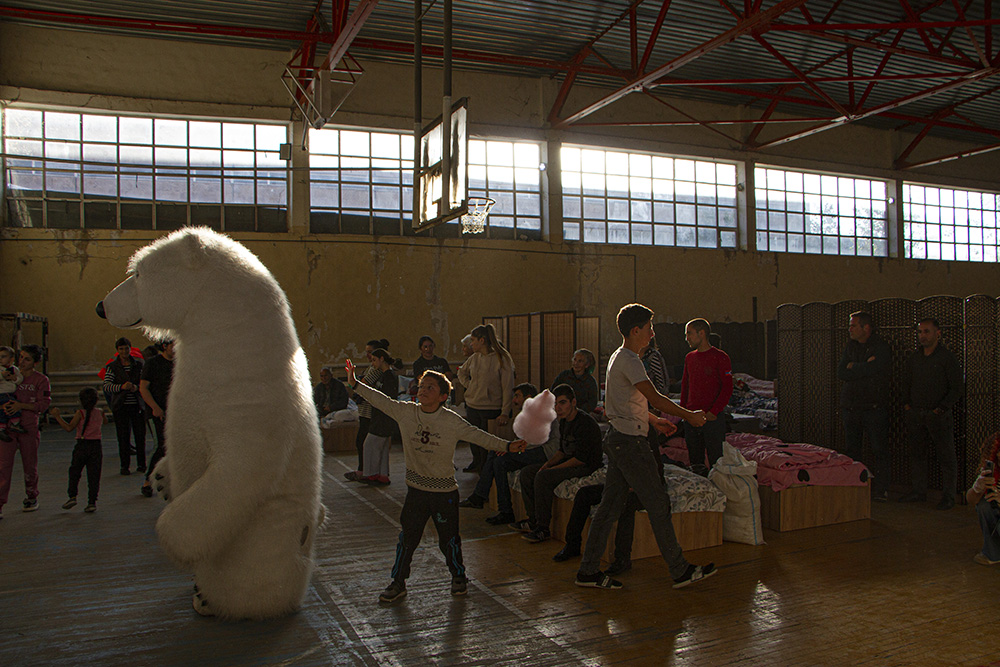
“Kids, look, Spider-Man!” Alisa jumped out in her new pink dress, expecting to meet the cartoon characters. The Unicorn and Spider-Man were waiting for them in the school yard. The children formed a circle and began to move around these characters. The music could be heard from a distance calling others. The circle grew bigger.
“Make room for me, too!” shouted Tigran and joined his friends.
The cartoon characters ran along the corridor into the room, which was already filled with bubbles. The children reached them and started to burst the bubbles as they were jumping with each other.
Through the darkness of the corridor, parents came to watch their children play. Grandfather Hrach was among them. He was smiling.
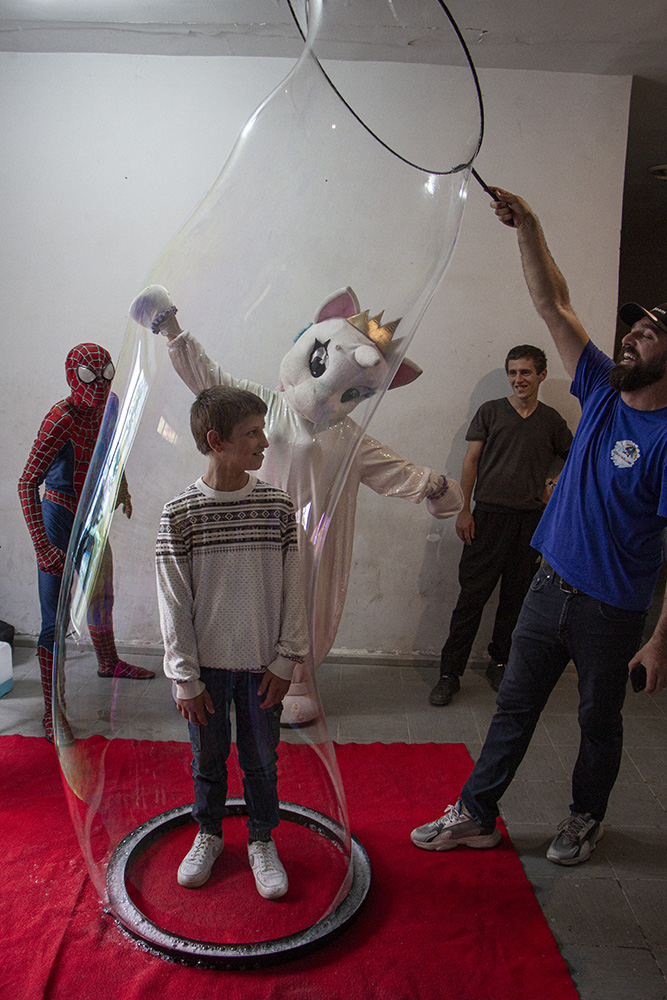
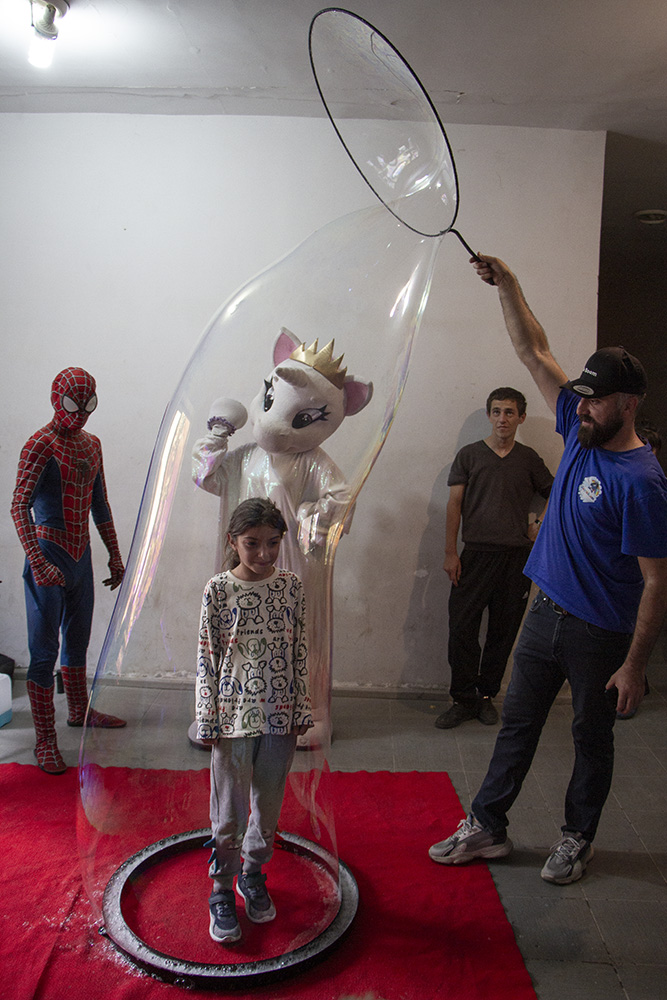
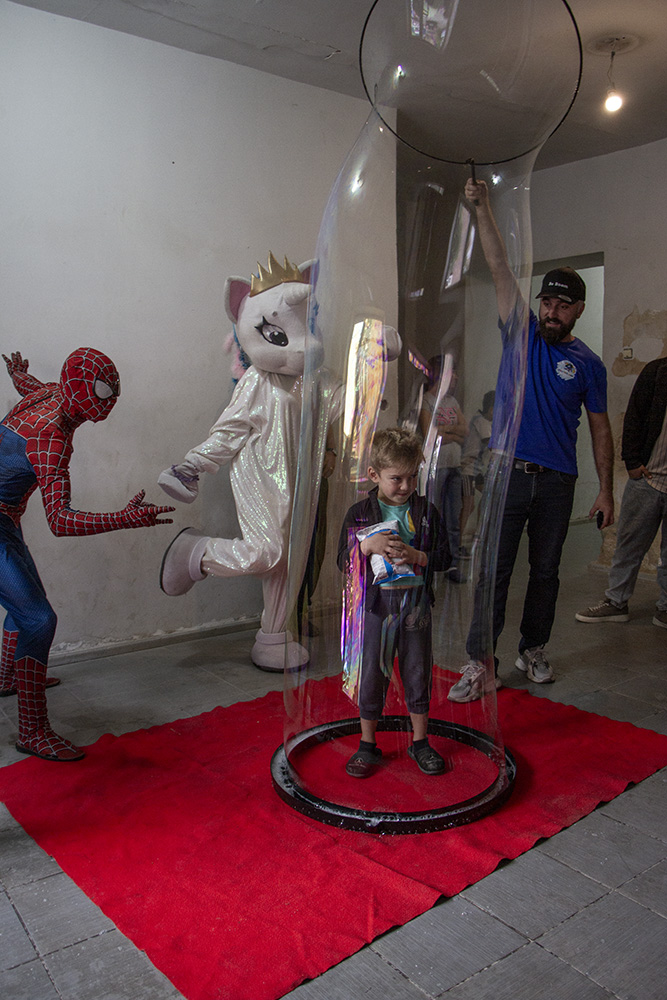
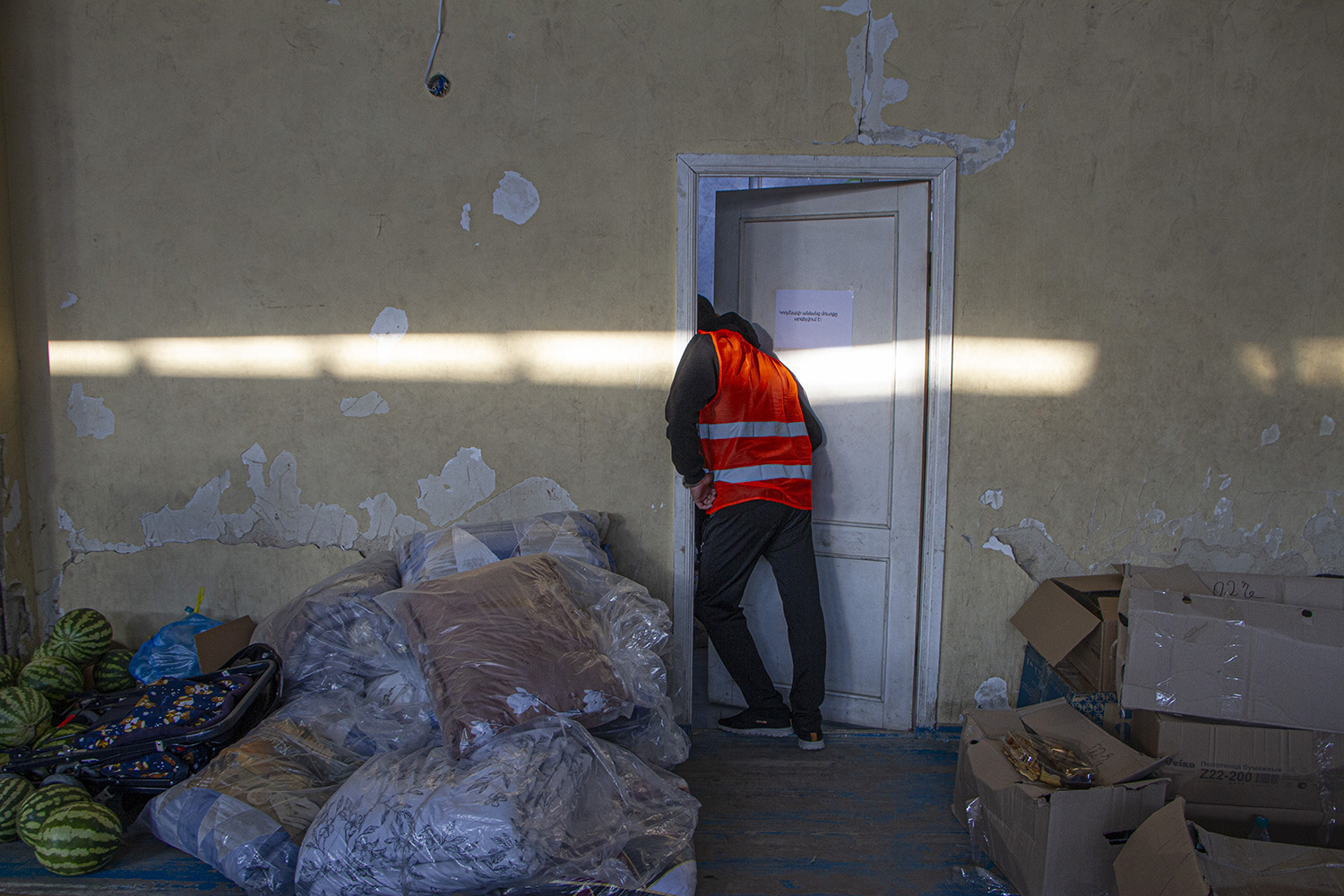
***
Lorut, November 12
Nestled in the mountains, Lorut was slowly awakening. The dawns were quiet in this village of Lori.
In the silent darkness, in the distance, the sounds of cow hooves were heard. The dense stars disappeared in the sky, and the smoke rising from the chimneys signaled the awakening of the village.
The smoke first came from Zoya’s house. Together with her two sons, Sevak and Seyran, she had just moved from Artsakh to Lori.
“Help yourself with zhengyal bread!” said Zoya. “To tell the truth, I couldn’t find all the herbs we have in Askeran, but it’s still good. We had fourteen types of herbs there. I found only seven here”, she added with a frozen smile on her face, seating next to the wood stove. She remained silent for a long time, then exhaled.
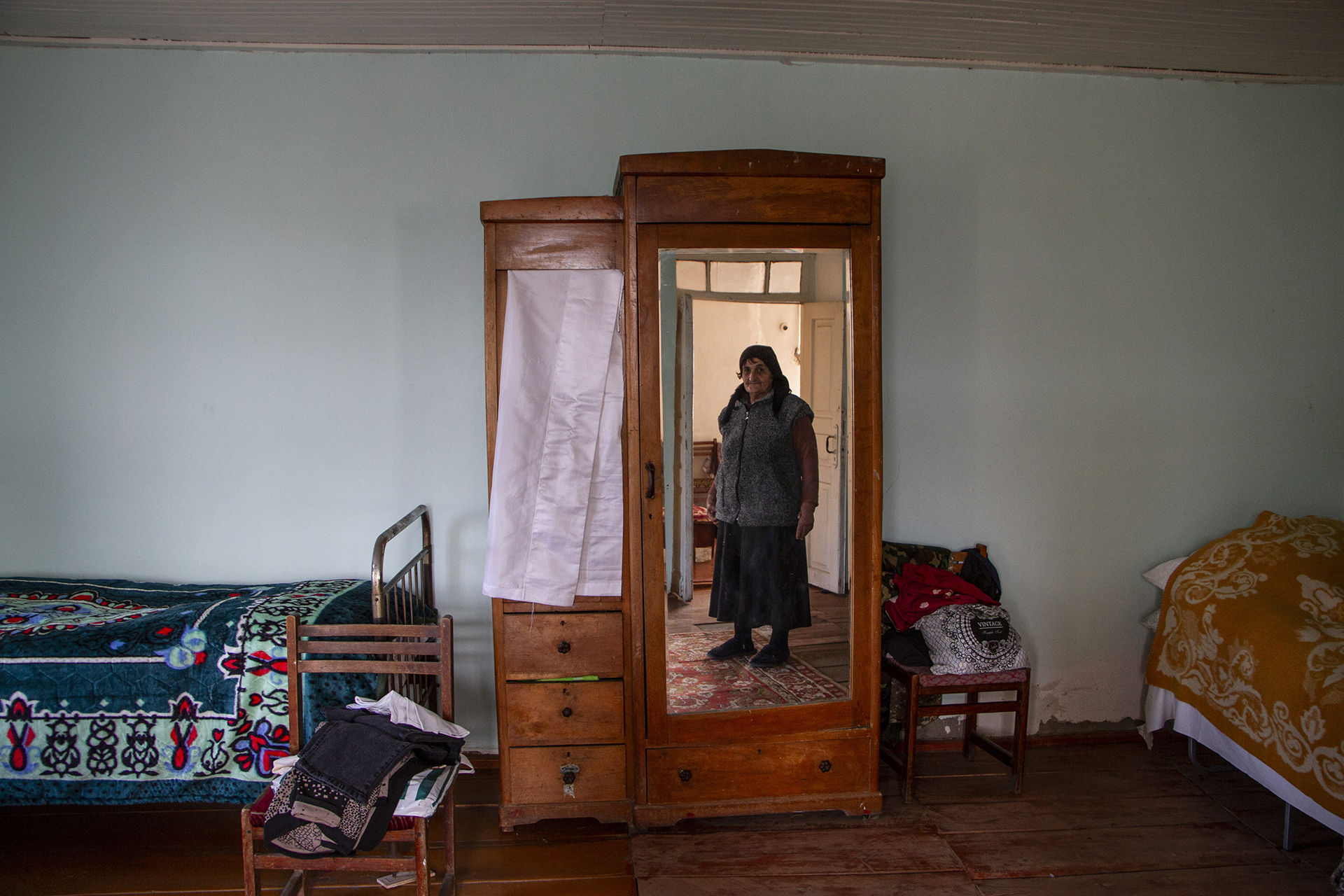
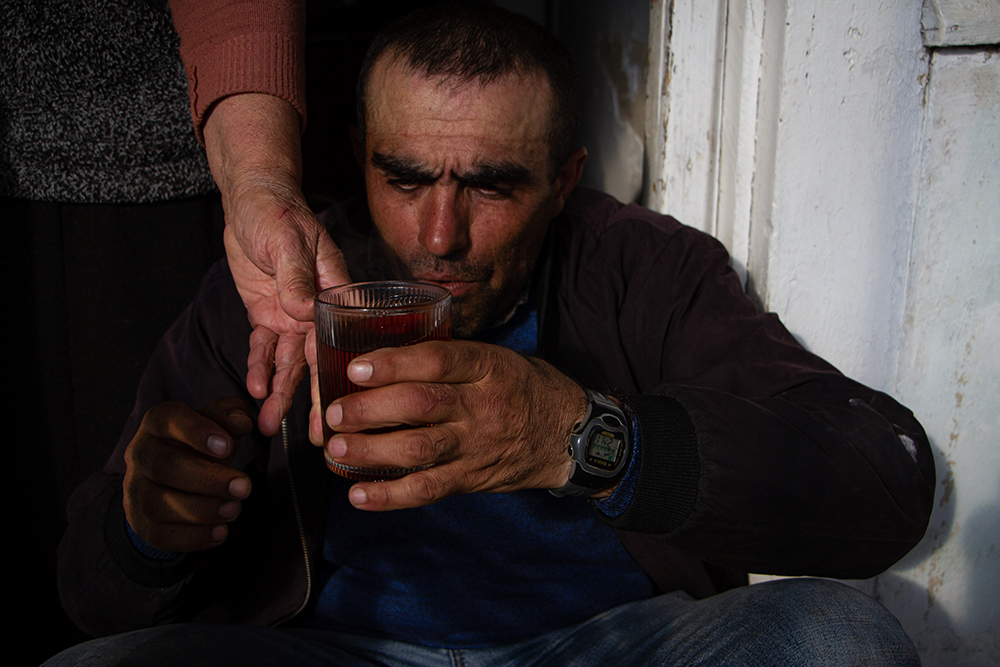
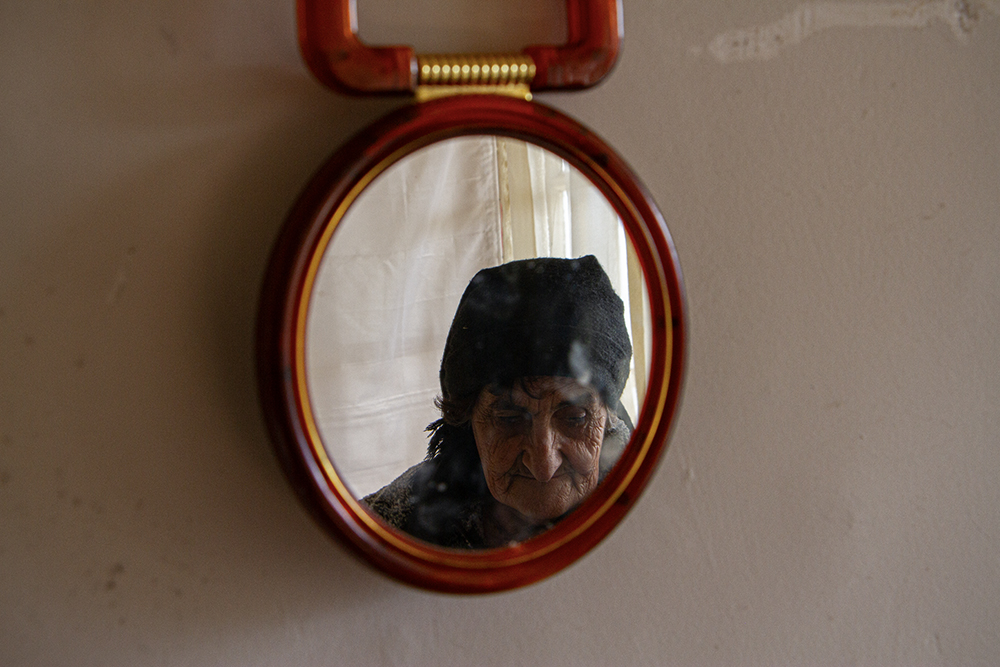
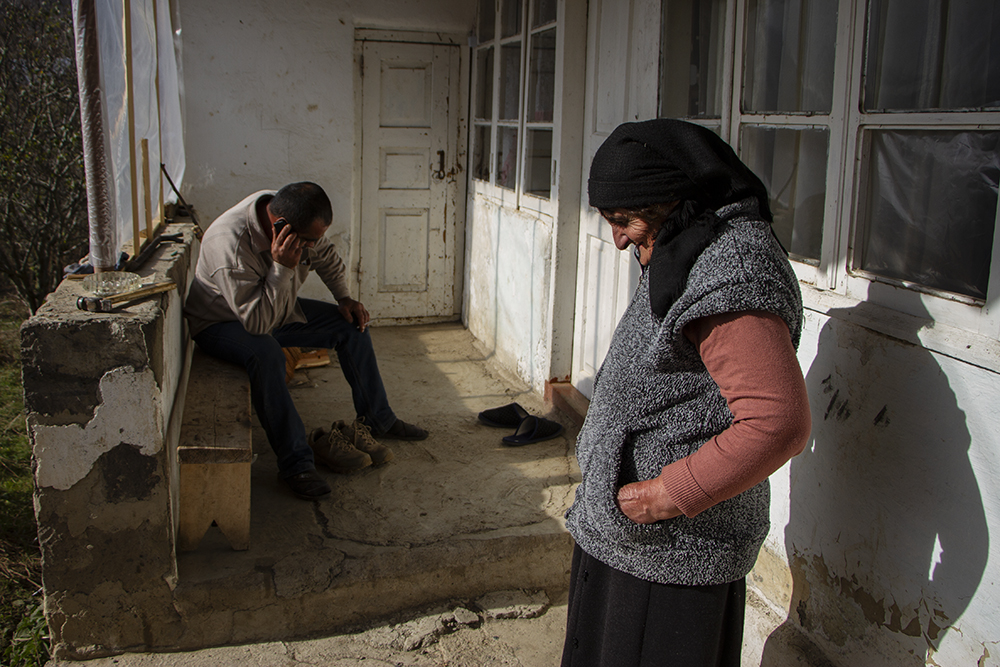
The kettle on the stove whistled. Zoya put it aside and continued.
“I have been working as a cleaner in our village school for twenty-eight years, though I have an accounting degree. Do you want me to show you photos of our school?” Zoya asked and, without waiting for my reply, she went to fetch the pictures.
“This is Sevak, he just turned one year old here. This is the first day of the first graders in our school. We are handing over books to kids. This is us, our family. This is my brother’s wedding. Oh, time flies so fast! Who would have thought…?”
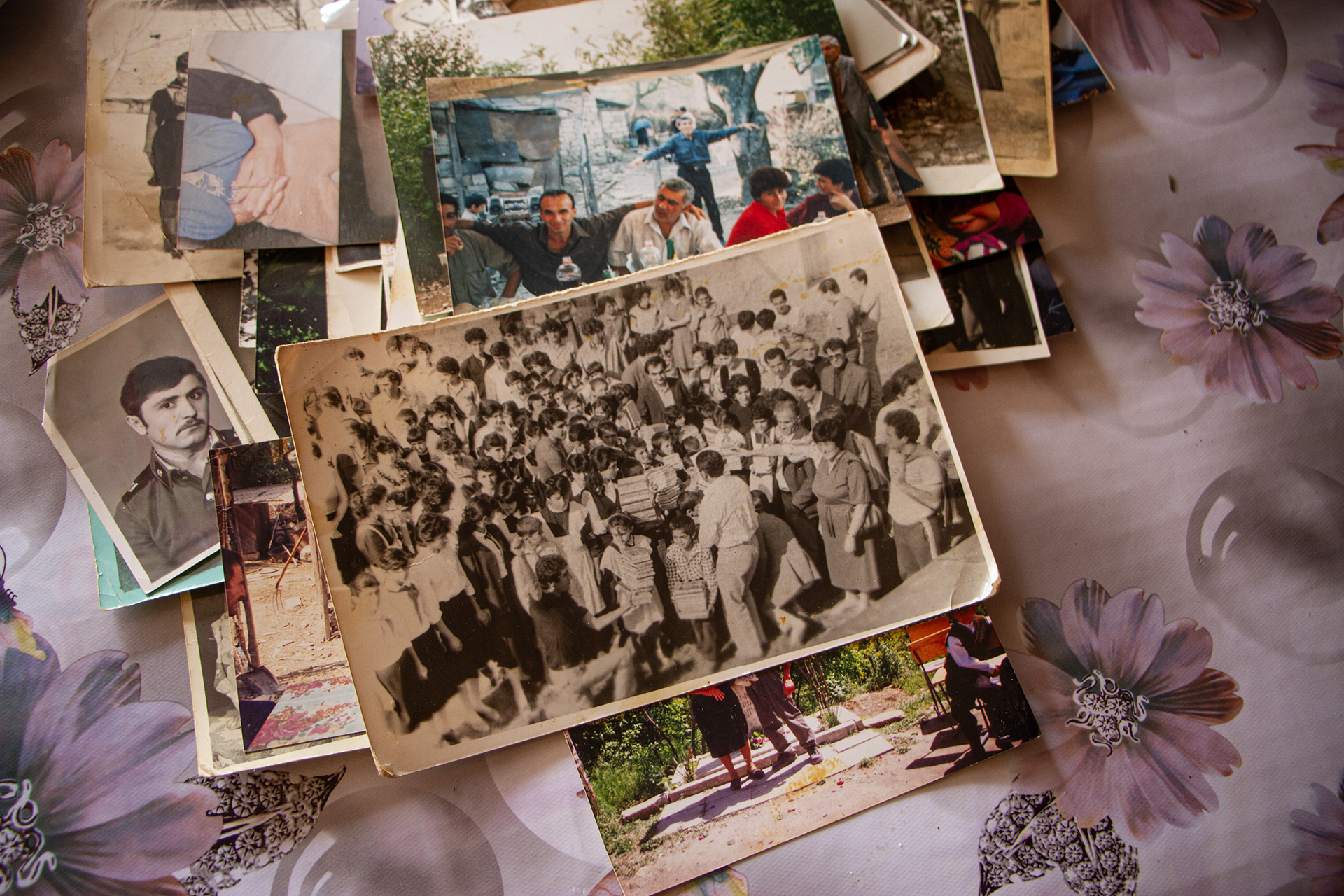
“The village people help us a lot with whatever they can. They have given us two pigs and will give sheep as well. Sevak has taken the village’s flock of sheep to the hillside to graze. He will be back soon. Seyran is also handy with everything. The neighbor is doing matagh today. They have called Seyran to slaughter the animal. He got married recently. His wife is in a hospital. She is going to give birth soon. They will have twins.”
